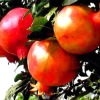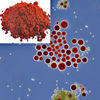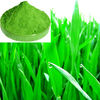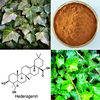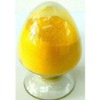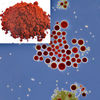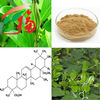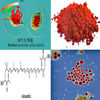1.Astaxanthin from Haematococcus pluvialis 2.CAS:472-61-7 3.Use:Antioxidant,Skin--whitening,Anticancer 4.ISO9001,Kosher,HALAL
Astaxanthin
(Haematococcus pluvialis extract)
Synonyms: 3,3'-dihydroxy-ß-carotene-4,4'-dione;Trans-Astaxanthin; Haematococcus Powder
Botanical Resource: Haematococcus pluvialis.
CAS No.: 472-61-7
Molecular formula: C40H52O4
Molecular weight: 596.86
Molecular Structure:
Product Specification:
1.Astaxanthin Powder 1%, 2%, 2.5%, 3%, 3.5% (by UV or HPLC)
2.Shell Cracked Astaxanthin Powder (Cell Wall Broken Astaxanthin Powder) 2%, 2.5%, 3%, 3.5%
Product Introduction
Astaxanthin, a member of the carotenoid family, is an oxygenated red-orange pigment. Professor Basil Weedon was the first to map the structure of astaxanthin. Astaxanthin is found in microalgae, yeast, salmon, trout, shrimp, crustaceans, and other sources. However, Haematococcus pluvialis appears to be the best source of astaxanthin. Astaxanthin cannot be synthesized by human and it must be provided in the diet. Astaxanthin has been proven to be one of the most powerful anti-oxidants yet discovered. University study shows Astaxanthin to be up to 550 effective than Vitamin E and 4 times than lutein in various antioxidant capacities.It freely crosses the blood-brain and blood-retina barriers to provide powerful support for eye and nervous system health. Moreover, increasing evidence suggests that Astaxanthin has extremely useful characteristics in scavenging of active oxygen, immune stimulation, cancer prevention and so on. Preclinical studies demonstrate that astaxanthin is safe and no known side effects.
Product Features
Sunfull Astaxanthin is cultivated in perpendicular solar-powered photobioreactors controlled by a closed circulation system, which allows Haematococcus pluvialis to proliferate efficiently for the production of highly concentrated Astaxanthin up to 3.5%. Air pollution, biological and chemical contaminations are prevented and stable cultivation can be maintained. So the quality of our Astaxanthin is better than the open-air pool growth of micro algae Haematococcus pluvialis.
Physiological Functions
1. Powerful antioxidant effects.
2. Increase strength and endurance
3. Boosts Immune System
4. Inhibit Skin aging with skin-whitening effect
5. Prevent Diabetic Syndrome & Arteriosclerosis
6. Cardiovascular & heart health Benefits
7. Improve Eye Health.
8. Anticancer, Anti-inflammatory & Anti-helicobacter Pylori Activity
9. Nervous System Benefits
Applications
1.Functional health food
2.Skin care in cosmetics
3.Pharmaceutical stuff
4.Feed additive
natural Astaxanthin from haematococcus pluvialis



